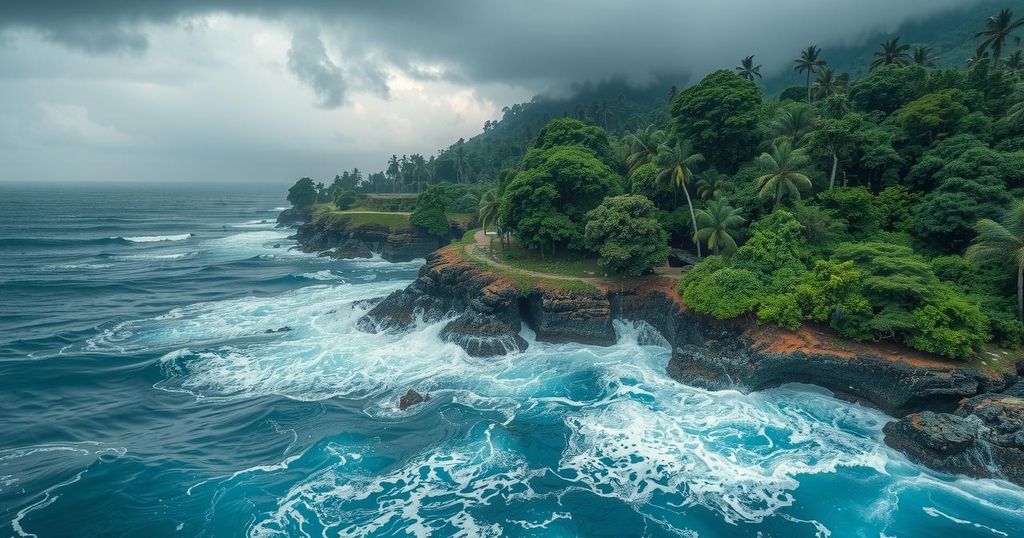Tropical Storm Dikeledi Impacts Mozambique with Dire Weather Threats

Tropical Storm Dikeledi has hit northern Mozambique, causing prior fatalities in Madagascar and flooding in Mayotte. The storm poses severe risks with projected heavy rainfall and strong winds. President Nyusi urged the public to seek safety and prepare for potential flooding. Recent ocean temperature increases are contributing to intensified cyclone activity.
Tropical Storm Dikeledi struck northern Mozambique on Monday, leading to significant adverse conditions after having earlier caused fatalities in Madagascar and widespread flooding in Mayotte. With the storm intensifying as it approached Mozambique’s Nampula region, it brought with it powerful winds and severe rainfall. According to Meteo-France, conditions are dire, with flood threats predicted to generate up to 200 millimeters of rain within 24 hours and wind gusts reaching 180 kilometers per hour.
In the wake of Dikeledi, Mozambique’s President Filipe Nyusi called upon the populace to exercise caution, advising them to seek safe shelter and ensure they have ample food and water supplies. During his address to the parliament in Maputo, he emphasized the necessity of safety, stating, “Go immediately to a safe shelter and stay there until the authorities give you further instructions.” The National Office for Risk and Disaster Management reported three fatalities in Madagascar from the storm, which transitioned into cyclone status prior to impacting the island.
The meteorological conditions prevalent in the Indian Ocean, particularly during the cyclone season from November to March, have been exacerbated by elevated surface water temperatures, which currently hover around 30 degrees Celsius. Research indicates that this phenomenon, attributed to global warming, not only intensifies storms but has also been documented in other oceanic regions including the North Atlantic and Pacific.
Tropical cyclones, such as Dikeledi, typically form in the Indian Ocean between the months of November and March. The occurrence of cyclones is influenced by various climatic factors, with increasing sea temperatures contributing to their intensity. Coastal regions, particularly in Mozambique, are often severely affected by such storms, leading to loss of life and extensive property damage. Recent history has shown that cyclones can lead to catastrophic impacts, such as the tragic effects experienced in December when Cyclone Chido resulted in numerous fatalities in northern Mozambique, underscoring the importance of preparedness for such natural disasters.
In summary, Tropical Storm Dikeledi has led to significant impacts in the region, particularly in northern Mozambique, following its earlier effects felt in Madagascar. Citizens have been urged to prioritize their safety in light of the impending weather conditions. The increased frequency and intensity of cyclones correlated with climate change necessitate an urgent response from both governmental and humanitarian organizations to effectively manage the risks associated with such natural events.
Original Source: www.barrons.com








